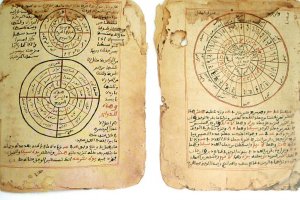Presented By: Institute for the Humanities
Archives and Futures: A View From ‘The Most Distant Place’
Marc and Constance Jacobson lecture by Shamil Jeppie

The Oxford English Dictionary describes Timbuktu as “the most distant place,” a view that comes out of European explorations of West Africa and the challenges in reaching the place in the interior of the continent, at the edges of the Sahara desert. Hardly anything was ever noted about Timbuktu’s place in a larger network of settlements with traditions of advanced literacy, of scholars and scholastic manuscript book making and collecting. Centuries of learned activity were well-known among various local communities. Some settlements become more famous than others. “Timbuktu” somehow became the most famous name. But it was neither an invention nor without actual scholars. What can the ways these manuscript libraries were kept and conserved - but also dispersed and often destroyed – over the past century and more tell us about the place of archives from the period before European contact in parts of the African past? When and how do archives come to give us insight into more than experiences and conceptions of the past but ideas about the future? The recent attacks on cultural sites including libraries in and around Timbuktu provides an opportunity to ask questions about the constructions of collections and archives, and their relation to writing about the past but also what they tell about visions of the future. These conflicts and the loss and hazardous movement of cultural artefacts and collections are far from over on the continent.
Shamil Jeppie is Associate Professor of History at the University of Cape Town and Director of the Institute of Humanities in Africa (HUMA). His research and publications focus on social and cultural history in South Africa and West Africa, and he is founder of the Tombouctou Manuscripts Project, which explores the formation of a culture of collecting in Timbuktu. His books include Language, Identity, Modernity: The Arabic Study Circle of Durban (2007), and the co-edited volumes The Meanings of Timbuktu (2008), Muslim Family Law in Sub-Saharan Africa: Colonial Legacies and Post-Colonial Challenges (2010), and Toward New Histories for South Africa: On the Place of the Past in Our Present (2004).
Shamil Jeppie is Associate Professor of History at the University of Cape Town and Director of the Institute of Humanities in Africa (HUMA). His research and publications focus on social and cultural history in South Africa and West Africa, and he is founder of the Tombouctou Manuscripts Project, which explores the formation of a culture of collecting in Timbuktu. His books include Language, Identity, Modernity: The Arabic Study Circle of Durban (2007), and the co-edited volumes The Meanings of Timbuktu (2008), Muslim Family Law in Sub-Saharan Africa: Colonial Legacies and Post-Colonial Challenges (2010), and Toward New Histories for South Africa: On the Place of the Past in Our Present (2004).